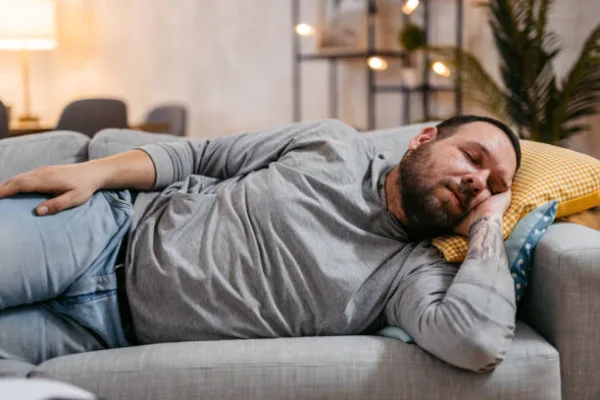Do you find yourself tossing and turning night after night, struggling to get a good night’s sleep? This is called sleeping disorders that greatly impact your overall well-being and quality of life. But don’t worry, there are ways you can fix this issue and improve your sleep patterns.
From insomnia to sleep apnea, each disorder requires a unique approach to treatment. You can then take steps toward finding a solution by identifying the root cause of your particular sleeping disorder.
Generally, establishing a regular sleep schedule can help regulate your body’s internal clock and improve your sleep quality. And creating a conducive sleep environment by keeping your bedroom dark, quiet, and at a comfortable temperature is also crucial for better sleep.
Here we will discuss how you fix your sleeping disorder and the types of treatments available.
10 Ways on How Do You Fix a Sleeping Disorder
Sleeping disorders can range from anxiety and stress caused by work or family life to underlying medical conditions such as chronic pain or depression. If you’re struggling with a sleeping disorder, there are several ways you can fix the issue:
- No 01: Establish a Routine for Sleeping
- No 02: Create a Conducive Sleep Environment
- No 03: Avoid Caffeine, Alcohol, and Nicotine
- No 04: Incorporate Regular Exercise into a Routine
- No 05: Explore Medication Options
- No 06: Consider Light Therapy
- No 07: Try Cognitive-Behavioral Therapy for Insomnia (CBT-I)
- No 08: Monitor Chronic Conditions
- No 09: Limit Electronic Device Use
- No 10: Seek Medical Consultation
No 01: Establish a Routine for Sleeping
To truly enjoy a good night’s sleep, start by establishing a sleep routine that you can stick to every day. Go to bed and wake up on time, regardless of the weekend.
Avoid napping during the day and use alarms or reminders to establish a routine. Stick to the schedule as much as possible, even when traveling or on vacation.
Gradually adjust the schedule over weeks rather than abruptly changing it.
No 02: Create a Conducive Sleep Environment
Creating a cool, quiet, and dark bedroom will help promote a peaceful sleep environment. Keep the temperature between 60 to 68°F to optimize comfort. Use blackout curtains to block out any unwanted light and invest in earplugs or white noise machines to reduce noise disturbances.
Opt for a comfortable mattress and pillows that support your body’s needs. Consider using calming scents like lavender to aid relaxation and create a soothing atmosphere conducive to sleep.
No 03: Avoid Caffeine, Alcohol, and Nicotine
Be mindful of your caffeine, alcohol, and nicotine intake, as they can disrupt your sleep and complicate things for you to fall asleep and stay asleep.
- Caffeine should be avoided for at least 6 hours before bedtime, as it’s a stimulant that can interfere with your ability to sleep.
- Alcohol may initially help induce sleep, but it can actually disrupt your sleep later in the night.
- Nicotine is also a stimulant that can interfere with one’s ability to fall and stay asleep.
Avoid consuming these substances close to bedtime to promote better sleep and opt for healthier alternatives.
No 04: Incorporate Regular Exercise into a Routine
Exercise can significantly improve the quality and duration of your sleep if you incorporate it into your daily routine. Get at least thirty minutes of exercise of moderate intensity four days a week. Exercise can improve sleep by reducing anxiety, increasing relaxation, and producing endorphins.
But, try to avoid exercising within 2 to 3 hours of bedtime, as this can stimulate your body and interfere with your ability to fall asleep.
No 05: Explore Medication Options
Sleep disorders sufferers may find relief from medication options. A healthcare provider may recommend prescription medication such as Diazepam 10mg.
You can buy Diazepam 10mg tablets online without a prescription from an accredited pharmacy. But, consulting with a healthcare professional before starting any medication regimen is crucial.
No 06: Consider Light Therapy
Light therapy involves using a light box that emits bright light similar to outdoor sunlight. By using the light box early in the morning for at least 30 minutes, you can help regulate your circadian rhythms and reset your sleep-wake cycles.
It has been found effective in treating seasonal affective disorder (SAD) and can benefit individuals with sleeping disorders. Remember to consult with a healthcare provider before starting any new treatments.
No 07: Try Cognitive-Behavioral Therapy for Insomnia (CBT-I)
Consider trying Cognitive-Behavioral Therapy for Insomnia (CBT-I) to improve your sleep and improve sleep quality.
CBT-I, a non-pharmacological approach, involves relaxation training, cognitive restructuring, and sleep restriction. It’s typically delivered by a trained therapist either in person or via teletherapy.
Research shows that CBT-I may be more effective than medication in the long term and can significantly improve sleep.
No 08: Monitor Chronic Conditions
Keep track of your chronic conditions to improve your sleep quality and overall health. Managing underlying chronic conditions can positively impact your sleep. Conditions such as heart disease, obesity, and depression have been linked to sleep disorders.
By working with a healthcare provider, you can develop a treatment plan that addresses both your chronic conditions and sleep problems. This will help you achieve better sleep quantity and quality while also improving your overall well-being.
No 09: Limit Electronic Device Use
For your well-being, it’s crucial to limit your use of electronic devices, such as smartphones and tablets. This is especially important in the 30 minutes leading up to bedtime.
Exposure to light from these devices can disrupt your sleep. Instead, relax, like reading or listening to soothing sounds before bed.
No 10: Seek Medical Consultation
Even after implementing all the above strategies, if your sleep problems still persist, don’t hesitate to seek medical consultation. Consulting a healthcare provider allows for proper diagnosis and treatment of sleep disorders while ruling out any underlying medical conditions.
During the consultation, be prepared to discuss your symptoms, sleep patterns, and lifestyle habits. The healthcare provider may also recommend diagnostic testing, such as a sleep study, to assess your sleep quality. It will identify any underlying causes for your sleep problems.
Sleep Soundly for Better Health
Fixing a sleeping disorder requires a combination of lifestyle changes and professional help. By adopting good sleep hygiene practices, such as maintaining a regular sleep schedule and creating a peaceful sleep environment, you can improve your chances of getting quality rest.
Also, seeking guidance from healthcare professionals like doctors or therapists can provide valuable insights into the underlying causes of your sleeping disorder and offer appropriate treatment options.
Remember, addressing a sleeping disorder is crucial for overall health and well-being, so don’t hesitate to take action and prioritize your sleep.



